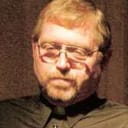Stay in the Loop
BSR publishes on a weekly schedule, with an email newsletter every Wednesday and Thursday morning. There’s no paywall, and subscribing is always free.
An old master embraces a new art form
Pennsylvania Academy of the Fine Arts presents Thomas Eakins: Photographer (first review)
Most think of Thomas Eakins (1844-1916) as one of Philadelphia's best-known painters. Many of his works, including “The Gross Clinic,” are acknowledged masterpieces of modern representational art. He was also an innovative art teacher, having first worked at the Philadelphia Sketch Club and then at the Pennsylvania Academy of the Fine Arts (PAFA). What is less well known is Eakins's fascination with the nascent art and science of photography.
For more than half his life, Eakins obsessively photographed friends, family, students, animals, landscapes, and — of course — nudes. I say “of course” because the nude form was the centerpiece of much of Eakins’s artistic study, as well as the source of his fall from grace.
Blending artistic disciplines
To celebrate the centenary of Eakins’s death, PAFA is holding a number of Eakins-related events. The most recent is an exhibition of his photography. In Thomas Eakins: Photographer co-curators Anna Marley and Susan Danly have documented how the artist became an early convert to the then-radical notion that photography could be both a valuable aid in painting, and a valid art form.
Perhaps more than anyone else of his era, Eakins used photographs as a guide in his ceaseless effort to capture a moment of action. He wanted to preserve what should be ephemeral, to make public what is normally considered private.
Eakins was not averse to admitting his indebtedness to photography at a time when it was thought to be quite wrong for a painter to seek this aid. In fact, he was severely criticized for confusing the two media. But then, Eakins was used to being criticized by the artistic establishment of his day.
Several images in the exhibition show how Eakins used photography to guide and inform his painting. One, of Eakins swimming nude with a group of his male students in a local watering hole, is particularly fascinating for its illustration of the way the artist adapted its elements for a painting of the same subject.
Long overdue recognition
It is ironic that PAFA should go to such great pains to lionize its most famous alumnus, given that the Academy fired Eakins for posing nude as a life model in the presence of female students (not a problem with male students, apparently). While there has never been a hint that Eakins engaged in sexually inappropriate conduct with his students, the modern observer must wonder whether today Eakins would not only be fired, but also prosecuted and jailed, regardless of the innocence of his motivation.
The exhibition doesn’t focus on this aspect of Eakins’s photographic career, other than to say matter-of-factly, “here it is,” and to give it a proper context. The purpose of this exhibition is not to denigrate Eakins, or gossip about him, but to celebrate his talents and contributions, as well as to give people an insight into his process. It achieves that purpose quite well.
There are only about 60 pieces in the show, including a few drawings and sculptures in addition to the vintage photographs, but the choices give a good representation of the range of Eakins’s examinations. Viewers might be surprised by how small most of the images are. Most pieces measure a few inches, forcing observers to get up close and squint a bit. But it’s worth it, to get a glimpse of how a master artist viewed the world. Any chance to experience a bit of Eakins’s vision is worth a bit of squinting.
To read Pamela Forsythe's review of this show, click here.
What, When, Where
Thomas Eakins: Photographer. Through January 29, 2017 at the Pennsylvania Academy of the Fine Arts, 118 N.Broad Street, Philadelphia. (215) 972-7600 or pafa.org.
Sign up for our newsletter
All of the week's new articles, all in one place. Sign up for the free weekly BSR newsletters, and don't miss a conversation.

 Gary L. Day
Gary L. Day